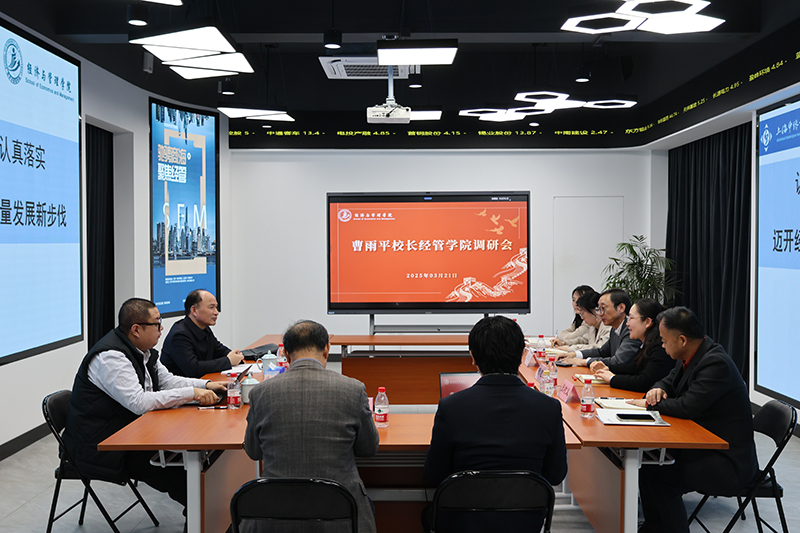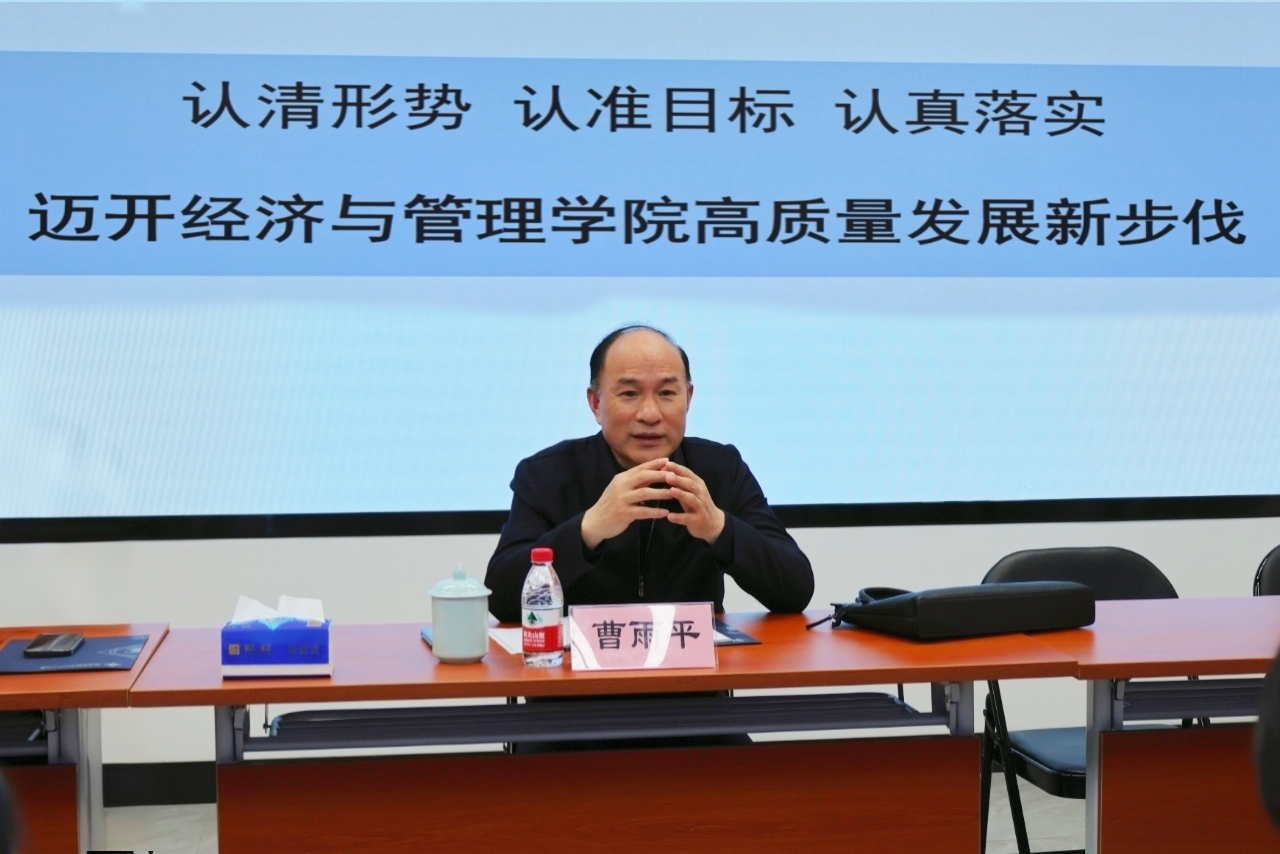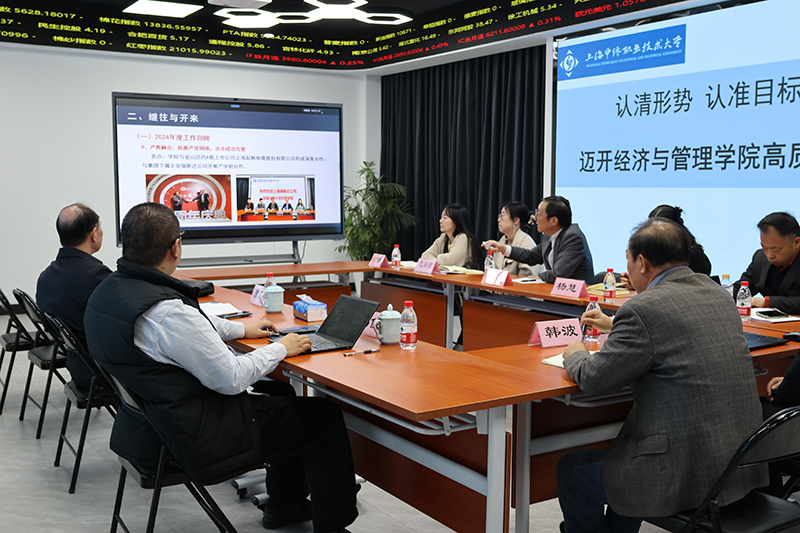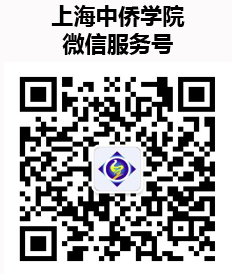President Cao Yuping, accompanied by Ma Jun, Director of the University's Party and AdministrativeOffice, visited the School of Economics and Management (SEM) on March 21st for a strategic development review and guidance. The meeting was attended by SEM Dean ZhangBingda, Party Branch Secretary Yang Hui, Vice Dean Zhang Shuyi and FanHaiyan.

Dean Zhang Bingda, on behalfof the School, presented a report on the fundamental status of SEM, including programs structure, faculty development, teaching-research achievements, and industry-education integration. He elaborated on the overall work plan and key focus areas in accordance with the University's 2025 categorical evaluation indicators. Secretary Yang Hui briefly reported on Party-building progress and student affairs. President Cao inquired about specific details during the reports.

After the reports, President Cao expressed “Three Unexpected Observations”, namely, I did not anticipate that the five undergraduate programs would develop so rapidly; I am surprised by the School's streamlined and efficient resource allocation; I was unaware that SEM faced so many challenges. President Cao emphasized that since the university's founding, SEM has evolved from initially offering eight 3-year vocational programs to currently adding five vocational undergraduate programs and three top-up bachelor's programs. He praised SEM's implementation of low-cost, multi-program, multi-level, cross-campus operations, describing the school as both the university's “cash cow and hardworking ox---a foundational contributor to the university's development.

President Cao pointed out that no university can function without a business school. He acknowledged the challenges SEM faces in transforming from 3-year vocational programs to undergraduate-focused education, urging continued adherence to entrepreneurial perseverance. He urged SEM to seize opportunities in vocational undergraduate education reform, deeply study emerging economic models, industrial trends, and new technologies, and strengthen government-industry-academia collaboration and industry-education integration. He also stated that Shanghai is a major economic hub in China, with numerous leading enterprises, some of which are located near the school. SEM should carry forward the "Si Qian SiWan" Spirit (a Chinese entrepreneurial ethos born from the Reform and Opening-up period, meaning The Trailblazer Spirit), make extensive contacts, take the initiative, seek resources and development opportunities through the integration of industry and education. SEM should actively cooperate with enterprises to jointly build training and practice bases and establish comprehensive experimental training labs. This will not only provide real-world practice scenarios for students but also offer intellectual support for the development of enterprises, thus solving the three major problems of students internships, graduation employment, and teachers development.

President Cao encouraged SEM to leverage new institutional opportunities through Party-building innovation and management mechanism reforms, actively serving Shanghai and Yangtze River Delta economies. He stressed strict compliance with the Ministry of Education's vocational undergraduate evaluation standards, with the aim of developing SEM from the school with the most programs into one of the University's top-tier schools.
On behalf of SEM, Dean Zhang Bingda stated that he would earnestly study and understand President Cao's requirements and immediately convey them to the Directors of all programs and faculty members. SEM will comprehensively decompose and implement the tasks set by the University in 2025. It will lead all the faculty and staff to boost their morale, take action, and strive to achieve the established goals, making due contributions to the high-quality development of the University.
(Contributed by: GengHaoyi,
Translated by: Lu Hong
Edit: Chi Zhang )




